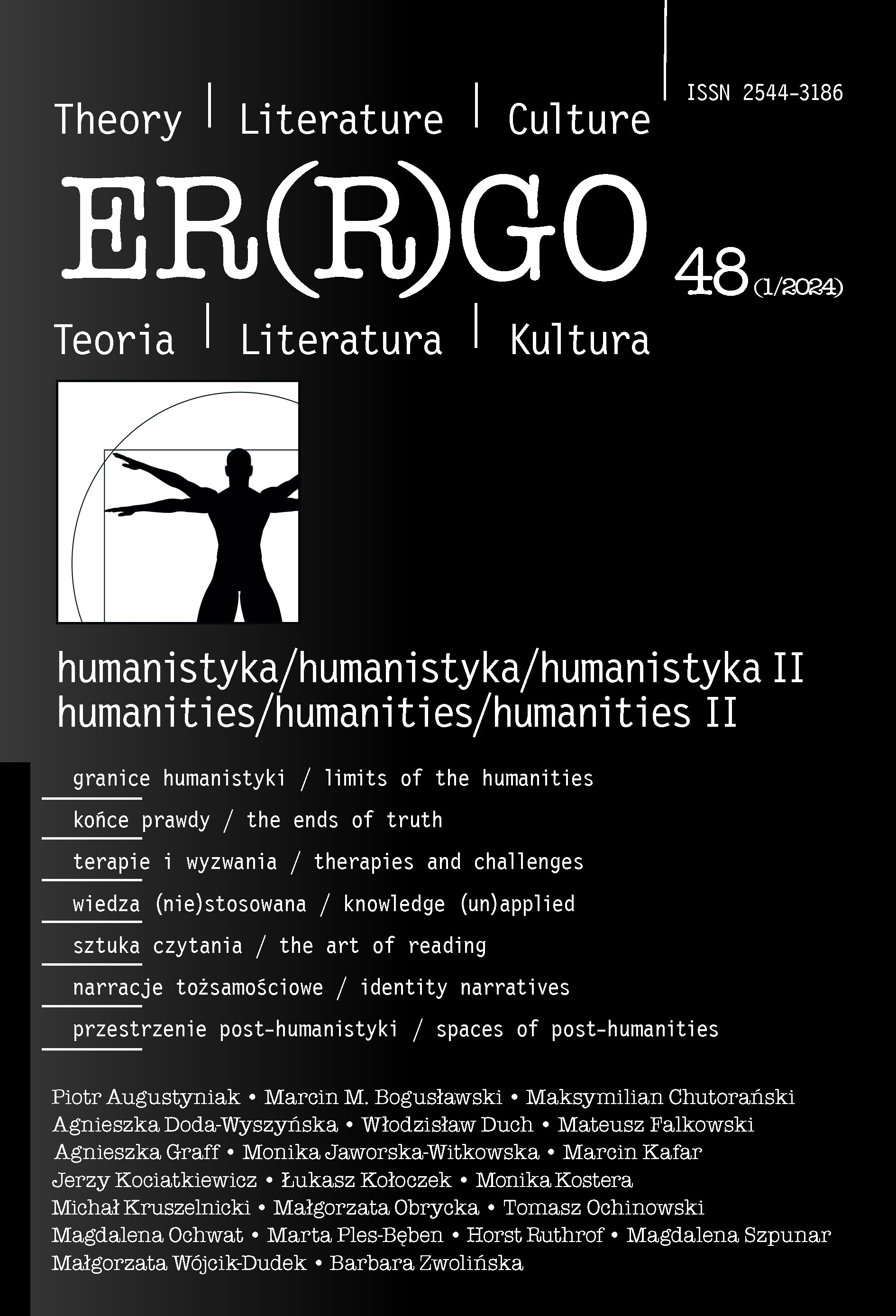Humanistyka i kultura czytania w obliczu zagrożeń egzystencjalnych. Lektury w czasach zarazy a egzystencjalne doświadczenia graniczne: epidemia-erotyka-wojna
Humanities and the Culture of Reading in the Face of Existential Threats. Readings in the Times of Plague and Existential Borderline Experiences: Plague-Eroticism-War
Author(s): Barbara ZwolińskaSubject(s): History, Philosophy, Language and Literature Studies, Fine Arts / Performing Arts, Studies of Literature, Theology and Religion, Culture and social structure , Health and medicine and law, Theory of Literature
Published by: Wydawnictwo Uniwersytetu Śląskiego
Keywords: pandemic; love; plague; war; isolation; reading; journal
Summary/Abstract: In the article, referring to the common experiences related to the pandemic, I reflect on the meaning of texts read in the “times of plague.” I ask the question, to what extent and what kind of reading helps to understand the traumatic events experienced by people (affecting the physical and mental state), what readers are looking for in novels, memoirs and journals concerning mass diseases, for example, plague and cholera. The review and analysis of these themes in selected works is accompanied by a question about the metaphorical meaning of the epidemic, symbolizing the diseases of civilization, such as: consumerism, materialism, thoughtless exploitation of natural goods, destruction of the environment, or, in general, the evil accumulating in subsequent wars. An important theme is also the one relating to the connection between eroticism with the plague–a trail important in T. Mann’s Śmierć w Wenecji and in G. G. Márquez’s Love in the Time of the Plague. Both fictional works, such as the novels mentioned above, as well as records of witnesses of history depicting the war as a plague, or referring, like S. Márai, to the journalistic style in describing the course of cholera in Italy, may inspire an attempt to answer the question to what extent readings describing the time of human trials in a situation of endangered humanistic values may be a signpost for future generations not necessarily feeling well in a culture without books.
Journal: ER(R)GO. Teoria-Literatura-Kultura
- Issue Year: 1/2024
- Issue No: 48
- Page Range: 27-44
- Page Count: 18
- Language: Polish

